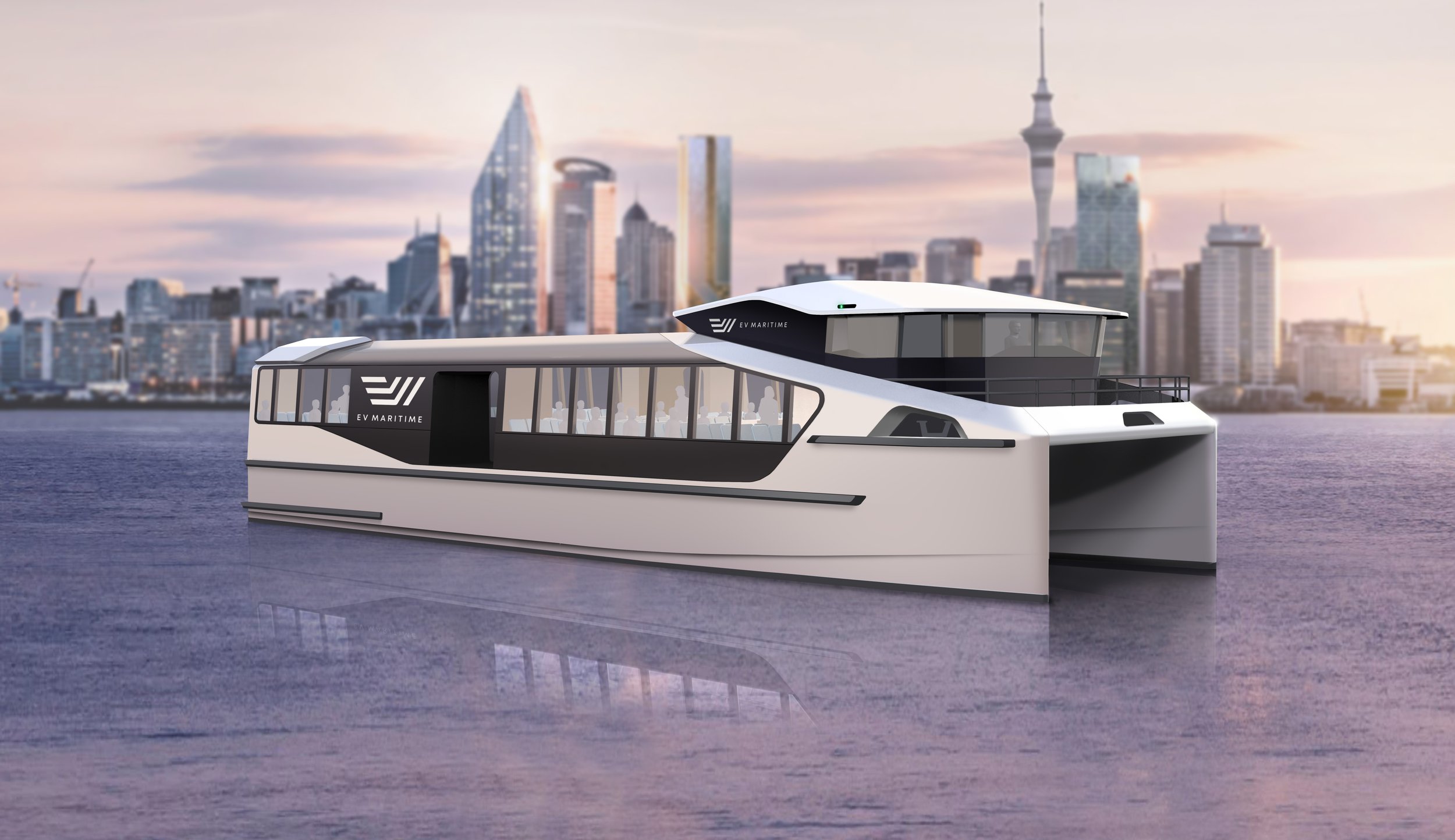Electric ferries coming to Tāmaki Makaurau
Commuters in Auckland will be able to travel by electric ferry come 2024, making their journeys cleaner, greener and quieter.
The Government is providing $27million funding for the initiative - about 75% of what it’ll cost to build the ferries. Auckland Transport will own the vessels, but it’s still undecided who will operate them.
The ferries currently in use - most of which are operated by Fullers - contribute around 20% of Auckland’s public transport emissions. The electric ones promise to dramatically reduce greenhouse gas emissions, with each displacing about 1000 tonnes of carbon emissions annually, says the Minister for Energy and Resources Megan Woods.
EV Maritime EVM200 Electric Fast Ferry. Image supplied.
“This project will be a major boost to the rapidly developing maritime clean technology sector in New Zealand and will further upskill the maritime transport sector in New Zealand,” Megan Woods says. “This is a boost for our climate goals and our economy, which is especially vital as we continue our economic recovery from Covid-19.
“This Government is committed to supporting low-emission transport options. We’ve invested significantly in on-road electric vehicles and have pledged to decarbonise the public transport bus fleet.
“Electrifying water transport is a natural next step in making public transport cleaner.”
Image supplied by EV Maritime.
The 200-seater vessels will have a top speed of 25 knots - on par with diesel ferries - with a range of 40km, meaning they could make the roughly 30km journey to Waiheke Island. It’s not clear how long recharging for the return trip would take, but Minister Woods told Radio New Zealand that charging infrastructure was being worked through with Vector.
The ferry project is a collaboration between the Government, Auckland Transport, EV Maritime and boat builders McMullen & Wing.
Late last year Fullers announced it was also building a lower emission ferry - a hybrid which would still have a diesel engine for backup.

